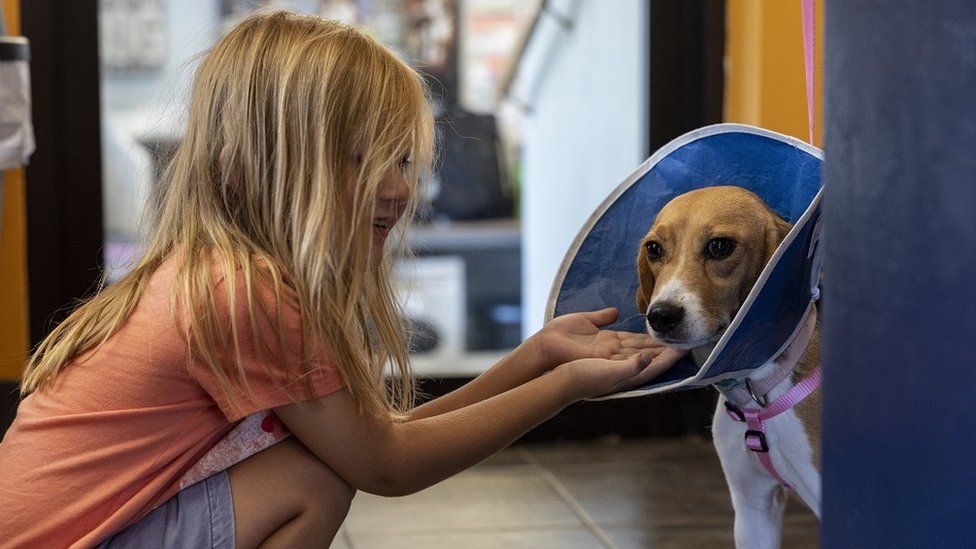ARTICLE AD BOX
By Francesca Gillett
BBC News
 Image source, Getty Images
Image source, Getty Images
Molly, 4, pets a beagle rescued from Envigo breeding and research facility as her parents fill out adoption papers
Nearly 4,000 beagles are looking for new homes after what is thought to be one of the biggest ever dog rescue efforts in the US.
The dogs were being bred at a facility in Virginia that then sold them on to laboratories for drug experiments.
But the company has now been shut down because of animal rights violations - and charities are on a mission to rehome the dogs.
"4,000 is a big number," said Kitty Block, head of the Humane Society.
"And it's going to take 60 days to get all of these animals out, and working with our shelter and rescue partners across the country, working with them to get these dogs eventually into ever-loving homes," she told Reuters.
The breeding facility in Cumberland, owned by company Envigo RMS, was sued in May by the US Department of Justice which accused it of multiple acts of animal cruelty.
Inspectors found some dogs were being killed instead of receiving veterinary care for conditions that could be easily treated. They were also being fed with food that contained maggots, mould and faeces, while some nursing mothers were denied anything to eat.
In another instance, 25 puppies died from cold exposure.
Following the lawsuit, the company denied the allegations but announced it was closing that facility, and placing the dogs with the animal rights charity Humane Society, CBS News reported.
The beagles are now being given medical examinations and vaccinations before being made available for adoption.
Image source, Getty Images
Image caption,200 beagles - these included - have already been given to a charity in Chino Hills in California
Virginia state Senator Bill Stanley told Reuters the rescue was the result of a years-long fight.
"I can attest to how great these dogs are because I have two of them," he told Reuters. "I bought two of those Envigo Beagles back in 2020 and 2021... Those beagles I bought because I did not want them to be experimented on. And now I know that their brothers and sisters are not going to be experimented on either."
Some of the dogs have already been rehomed across the US - including 200 that went to southern California.
Rehoming charities say many of the animals show signs of trauma, and some of the puppies had never been held and did not know how to play.

 2 years ago
15
2 years ago
15








 English (US)
English (US)